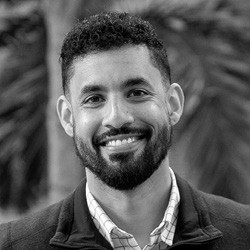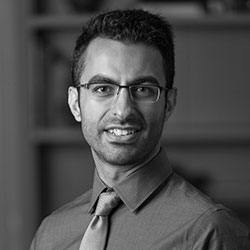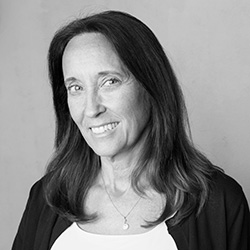Architecture that improves the lives of people is a primary motivation for Farzana Gandhi. In her teaching and practice, she has developed a unique, integrated design approach to tackle multi-layered social and environmental problems, common in the profession today.
Gandhi is most interested in how widespread social impact can be achieved by rethinking the relationship between architecture and its environmental, cultural, and socioeconomic framework. By acting at the intersection of multiple disciplines, a single intervention has potential to act as a catalyst for systemic change. Her community outreach work in places like Dakar, Senegal and also right at home in Brooklyn, NY is driven by inquiry, investigation, and integration. She says, For me, the classroom is a rich testing ground for this emerging dimension of practice – this has resulted in an intimate relationship between my research and teaching, one continually informing the other.
Most recently, Gandhi led a group of students in the design and construction of a community beach pavilion in Puerto Rico. Offering an interactive social space and picnic area, the project also has the potential to instigate larger scale improvement of an area economically ripe for tourism. NYIT students worked hand in hand with local students from the University of Puerto Rico throughout the semester via videoconferencing and then traveled to San Juan during their Thanksgiving break to build the project within just a week.
Gandhi is currently working with NYIT architecture students and Pace University computer science students to design a public education center for Dakar, Senegal. Supported by a grant, the AppDock for Africa project proposes a new outreach model to promote mobile technology use in rural areas – one that complements digital media with a physical space. Students have already immersed themselves in Senagalese culture, construction techniques/materials, and environmental strategies to offer a solution suited to local needs.
Gandhi believes that it is imperative that we offer our students lateral and comprehensive ways of thinking, communication, and visual representation in our increasingly connected world. After leading students in a traveling design studio program in India, she said, I was happy to see our students engaging so critically with local architects. Discussions centered on pressing contemporary issues that could inform solutions locally, but also within larger global contexts.
Students sketched landmarks, synthesized travel observations, and designed low-rise, high-density affordable housing solutions in Mumbai — all while grappling with the challenges of failing infrastructure and rapid urbanization in cities already squeezed for space.
In addition to such endeavors, Gandhi teaches architecture design studios and visualization seminars at all levels in the curriculum. She frequently lectures about her work, which has been recognized with several awards and is widely exhibited and published. She and her colleagues were recently featured in an episode of Horizons, a BBC worldwide television show for their patented, climate-appropriate, disaster-relief roof system, called the Home2O Roof System.
Gandhi earned a Master in Architecture with Distinction from the Harvard Graduate School of Design. At the University of Pennsylvania, she graduated Phi Beta Kappa with a Bachelor of Arts in Architecture as well as a Bachelor of Arts in Spanish with Distinction. She is a Registered Architect in New York and a LEED Accredited Professional. Her architecture practice, Farzana Gandhi Design Studio, focuses on sustainable and socially conscious solutions, both locally and abroad.











